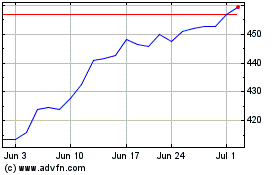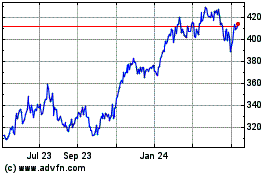By Kelsey Gee
Social-media platforms like Facebook and Twitter aren't the only
ones tracking how people connect and share with their peers.
Employers are doing it too.
Companies like Boston Consulting Group, and Microsoft Corp. are
mining employees' emails, chat logs, and tracking face-to-face
interactions to get a better grasp on how information travels among
employees.
The goal, managers said, is to cut down on time-consuming
meetings, vague emails and useless training sessions. While some
bosses already use apps to gauge productivity and employee
performance, management researchers say new technologies like
sensor-laden ID badges and programs that analyze online calendars
offer a better measure of how efficiently teams communicate and how
well they collaborate without overtaxing one another's time.
In preparation for an office move, consulting firm BCG gave 20%
of its roughly 500 New York-based employees ID badges to wear last
spring. The badges tracked the volunteers' movement through the
office and recorded whom they talked to -- though not what they
said -- and how long they spent in conversation. BCG hoped to learn
how the old office layout affected their interactions with
colleagues and overall workload.
Ross Love, a managing partner leading the project, said the
tracking data collected from the badges showed many employees were
spending too much time with bosses or direct reports, which limited
the flow of information across teams. The six-week trial also
revealed that people who stopped more often to chat with random
colleagues spent, on average, five fewer hours in long meetings.
Mr. Love suspected the time difference meant commingling workers
were spreading news and updates more efficiently.
The findings informed the design of BCG's new office. To boost
employee interactions and cut down on formal meetings, the company
added a town-square style lounge area serving free breakfast and
lunch, where most people stop for coffee or snacks throughout the
day.
Diana Li, a BCG associate who participated in the trial, said
the lounge's new salad bar was a "game-changer" that has prompted
her to leave her desk more often.
Since the November relocation, Mr. Love said employees
collaborate across the business better, an impression BCG will
quantify in a second analysis of employees' work habits in the
coming weeks.
The maker of the sensor-laden ID badge, Humanyze, is one of a
growing number of software companies and in-house analytics tools
replacing company directories and team calendars.
The new push to measure and manipulate workplace interaction is
driven by changes in the way people work. People across industries
spend 50% more time collaborating than they did 10 years ago,
according Rob Cross, a professor at Babson College, who -- with two
colleagues -- analyzed 300 organizations.
Syndio, a Santa Cruz, Calif.-based relationship analytics
startup, has created a software tool that co-founder Katya Siddall
said helps companies find out which employees may be feeling left
out of formal channels of communication.
Syndio's application gathers email data and asks co-workers to
respond to survey questions like "Does Natasha inspire you?" It
then maps a constellation of connected dots, which represent
relationships and the strength of each bond.
Employees with fewer, weaker ties are depicted by smaller-size
dots, so bosses clearly see who might need help connecting with
co-workers.
Addressing the more intrusive aspects of her product's data
collection, Ms. Siddall said only email data like the sender and
recipient -- not the message's content -- were collected. She said
both bosses and employees at client companies, including health
insurer Health Care Service Corp. and Exelon Corp, were more
willing to have their communication monitored when they knew it was
being used to improve relationships.
Although Ms. Li, the BCG associate, said at first she was
self-conscious about how much she was interacting with colleagues
while wearing the smart ID badge, after a few days she forgot she
was generating data.
"Now it's like, how many times have I been on a project where
two companies are merging and thought, I wish I had data to show
how teams are working together?" Ms. Li said.
Volometrix, a company acquired by Microsoft in 2015, tracks
email activity and searches calendar events in Microsoft's Office
365 products, to measure how employees spend their time, and how
much time they drain from co-workers.
The tool, now dubbed MyAnalytics, helps pick up patterns that
could hurt teamwork and even offer suggestions. Night owls who
frequently send late-night emails might be prompted to consider
waiting until the morning to send non-urgent messages if the
program notices their contacts are clocking longer days to stay on
top of their inboxes.
Ryan Fuller, who founded Volometrix and now runs Microsoft's
workplace analytics team, says his own team of engineers used the
tool when they were frazzled from a disjointed schedule of meetings
and individual projects. Reorganizing meeting times freed up two
hours for uninterrupted work each week, he said, creating a 5% bump
in productivity for the 50 developers, who now report the highest
morale scores in the division.
(END) Dow Jones Newswires
March 21, 2017 09:14 ET (13:14 GMT)
Copyright (c) 2017 Dow Jones & Company, Inc.
Microsoft (NASDAQ:MSFT)
Historical Stock Chart
From Mar 2024 to Apr 2024

Microsoft (NASDAQ:MSFT)
Historical Stock Chart
From Apr 2023 to Apr 2024
